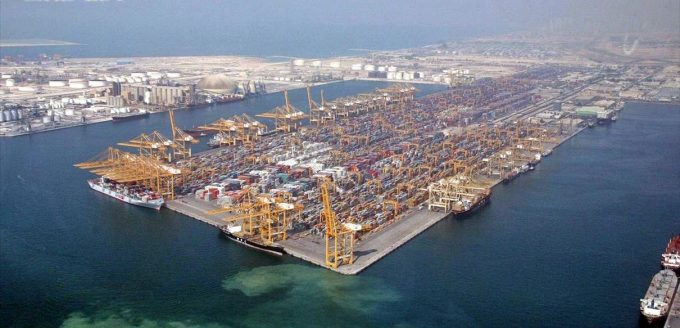Payday in Oz – time for higher transport rates
No profit here, please…
GM: RAISING THE ROOF GGM: IN FULL THROTTLE GZIM: MAERSK BOOST KNIN: READ-ACROSSMAERSK: NOT ENOUGHMAERSK: GUIDANCE UPGRADEZIM: ROLLERCOASTERCAT: HEAVY DUTYMAERSK: CATCHING UP PG: DESTOCKING PATTERNSPG: HEALTH CHECKWTC: THE FALLGXO: DEFENSIVE FWRD: RALLYING ON TAKEOVER TALKODFL: STEADY YIELDVW: NEW MODEL NEEDEDWTC: TAKING PROFIT
GM: RAISING THE ROOF GGM: IN FULL THROTTLE GZIM: MAERSK BOOST KNIN: READ-ACROSSMAERSK: NOT ENOUGHMAERSK: GUIDANCE UPGRADEZIM: ROLLERCOASTERCAT: HEAVY DUTYMAERSK: CATCHING UP PG: DESTOCKING PATTERNSPG: HEALTH CHECKWTC: THE FALLGXO: DEFENSIVE FWRD: RALLYING ON TAKEOVER TALKODFL: STEADY YIELDVW: NEW MODEL NEEDEDWTC: TAKING PROFIT

The wave of charges typically levied on containerised freight has fallen into the crosshairs of the Dubai Maritime Authority (DMA), amplifying the controversial issue of transparency in supply chain costs.
DMA, which governs ports, customs and free zones in the UAE, requires logistics stakeholders, including shipping lines, NVOs, forwarders and customs brokers, to pre-file their “local sea container charges” on its digital platform, the Dubai Trade Single Window Portal.
Service providers have 30 days to comply with the mandate, which took effect yesterday.
Some of the items covered by the significant regulatory step are charges for cargo loading/unloading, weighing, intra-port shifting, stuffing/destuffing, sealing, customs clearance, delivery orders and contract amendments.
A freeze on the scale of all such fees, after filing, is another shock for the transport industry.
“Service providers are prohibited from increasing their existing sea container charges in any way, whether directly or indirectly, or by applying new sea container charges,” said the DMA.
The other major implication is that the regulation opens the field for the authority to question tariffs, and service providers facing scrutiny must stop collecting the charges until any dispute is resolved, with penalties for violations.
Sheikh Saeed bin Ahmed bin Khalifa Al Maktoum, DMA executive director, said: “The new directive is based on a thorough study we conducted as part of efforts to consolidate Dubai’s status as a global maritime hub, enhance the transparency and cost-visibility of local sea container charges and, ultimately, boost the sector’s investment attractiveness.
“The introduction of the directive will allow us to analyse data submitted by service providers and determine whether they reflect commercial best practices and fair competition, which we are tasked with promoting in Dubai’s maritime sector.”
It is generally argued by pro-shipper groups that ancillary and other surcharges make up a major portion of revenue earnings for carriers and other intermediaries. And container lines have increasingly extended their service reach beyond port-to-port shipping, with container depot operations the most sought-after value-addition play.
According to industry sources, the overarching challenge is how ocean transport interests are going to get their arms and heads around the regulatory mechanism in a fiercely competitive market, more so when the UAE offers little flexibility regarding compliance.
For shippers in the UAE, the move comes on the heels of Dubai Customs imposing a requirement for attestations from the ministry for import invoices of AED10,000 ($2,723) and above, part of government efforts to combat shipping fraud.
And Indian policymakers have also targeted transparency gaps in logistics costs with regulatory measures and digitalisation, causing some flashpoints in carrier-customer relationships, particularly regarding terminal handling charges. That broader push also saw the launch this year of a national logistics portal, designed as “a one-stop shop logistics experience” for users.
Comment on this article